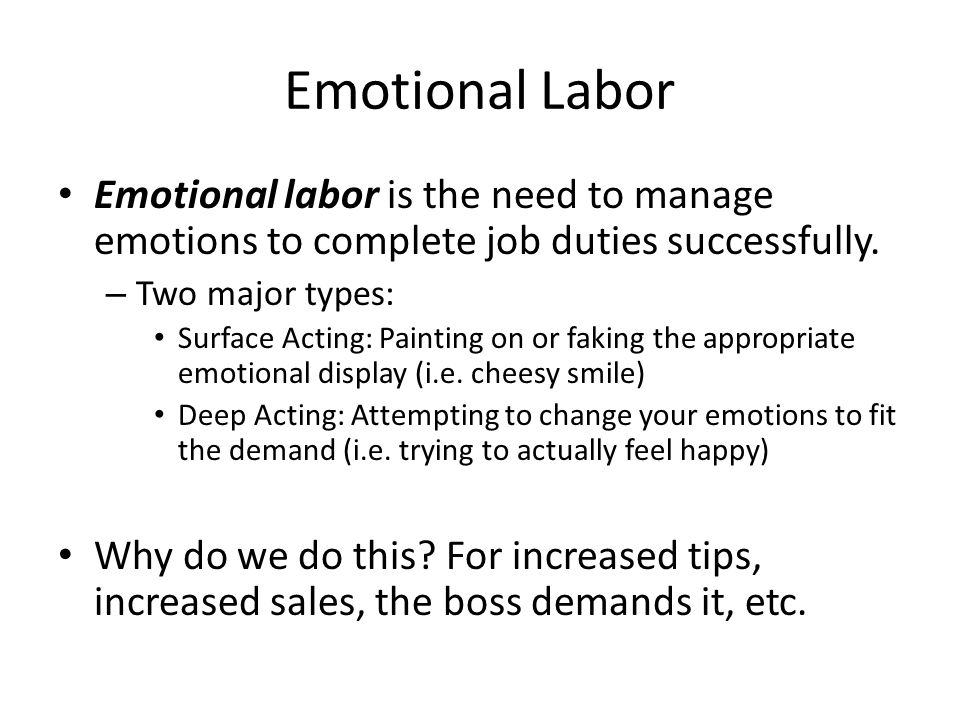Emotional labor is the process of managing one's own emotions, as well as the emotions of others, in the workplace. It refers to the efforts that individuals make to regulate their own feelings and expressions in order to fit the expectations of their job and the organization. Emotional labor is a significant aspect of many jobs, particularly those that involve interacting with the public or providing customer service. It can be a challenging and exhausting aspect of work, and it can have a significant impact on an individual's well-being and overall job satisfaction.
One of the main challenges of emotional labor is that it is often not recognized or compensated as part of an employee's job. Many people are expected to perform emotional labor as part of their job duties, but they do not receive any additional pay or benefits for doing so. This can lead to feelings of resentment and burnout, as employees are expected to continually manage their emotions without any additional support or recognition.
Emotional labor can also be difficult because it requires individuals to constantly adjust their emotions and behavior to fit the expectations of their job and the organization. This can be especially challenging when an employee's personal values or beliefs do not align with the expectations of their job. For example, an employee who values honesty and authenticity may feel uncomfortable pretending to be happy and friendly with customers when they are not feeling that way.
In addition to the challenges that emotional labor presents for individuals, it can also have negative consequences for organizations. When employees are expected to perform emotional labor without adequate support or recognition, it can lead to high levels of burnout and turnover. This can be costly for organizations, as it can lead to decreased productivity and increased training costs for new employees.
To address the challenges of emotional labor in the workplace, it is important for organizations to recognize and acknowledge the emotional demands of certain job roles. This can include providing additional support and resources to employees who are expected to perform emotional labor, such as training in emotional intelligence and stress management. It is also important for organizations to create a culture that values and supports the well-being of its employees. This can include providing opportunities for employees to take breaks, engage in self-care activities, and express their emotions in a healthy and supportive way.
In conclusion, emotional labor is a significant and often unrecognized aspect of many jobs. It can be challenging and exhausting for individuals, and it can have negative consequences for organizations. By recognizing and supporting the emotional demands of certain job roles, organizations can create a culture that values and supports the well-being of its employees. This can lead to increased job satisfaction, productivity, and overall organizational success.






